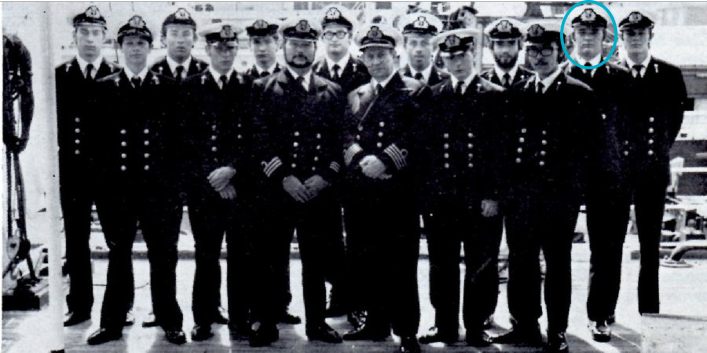
In this 20-minute video presentation, our CEO Robert Kenworthy chronicles the sweeping changes in the maritime communication landscape that have taken place during his career and how these trends culminated in the birth of GTMaritime. Drawing from key episodes during his time at sea in the 1970s, in the telecoms business in the 1980s, and setting up his own company in the 1990s, he sheds light on the core values and principles that have made GTMaritime what it is today and continue to guide the company’s transition to the age of data.
Robert joined the merchant navy in 1975 as an 18-year-old cadet. He was soon sailing to every corner of the globe on bulk carriers and general cargo ships that were laden with all manner of cargo – anything from industrial machinery to beer and spirits.
His most treasured memory is of his first voyage to South Africa, when he was greeted by a magnificent sunrise over Table Mountain. “As so many have experienced, witnessing this spectacular vista is a truly humbling experience.”
He recounts the equipment that was available to radio officers working in the merchant fleet in the late 1970s and how they made the most of the measly bandwidth to receive navigation warnings, to arrange crew changeovers, to plan port arrivals, to log fuel consumption, to seek medical advice in emergencies, and, perhaps most importantly for maintaining morale onboard, to get the latest football results.
Crew mostly stayed in touch with their families by post. Even after satellite phones started to arrive onboard, the exorbitant charges of making calls meant conversations were kept very short, almost telex like, even when matters of the heart needed discussion. Nevertheless, as the technology became more widespread, so the number of radio officers in the merchant fleet entered decline. “The irony of the situation was that the role was becoming redundant just as more electronics were coming onboard,” Robert pointedly notes.
After leaving the merchant navy and coming ashore in the mid-1980s, Robert got his first taste of working for a telecommunications company catching the industry just as it was switching from analogue to digital. Yet, he could not escape the gravitational pull of the marine world for long. In 1994, he joined MariNet Systems, a start-up that pioneered email-at-sea by tethering 9600bps Motorola modems with Inmarsat A terminals. It was a primitive solution by contemporary standards, but it worked.
Later, when Marinet was bought out, Robert decided to go it alone, and set up his own business called Global Technology. Instead of focusing on hardware, he saw an opportunity for providing a simple-to-use subscription service for ship-shore email. He wryly remarks: “Today of course we would call it a cloud-based service, but the term was yet to be invented.”
Since then Global Technology has turned into GTMaritime and the company has gone from strength to strength. Today it handles the email traffic for some 5,600 vessels – around one in every ten ships in the global fleet. On any single day, more than 380,000 messages pass through its servers.
Casting his gaze to the future, Robert notes that the growth in email traffic may be levelling off but adds that the amount of raw data being sent from to ship to shore is climbing exponentially. With the sector seemingly on the cusp of a dramatic transformation, he offers a glimpse of how GTMaritime is readying itself by developing new products and services that will ensure the global fleet will sail safely into the digital era.
Contact us to discuss how GTMaritime can help with your future maritime communication – Here
